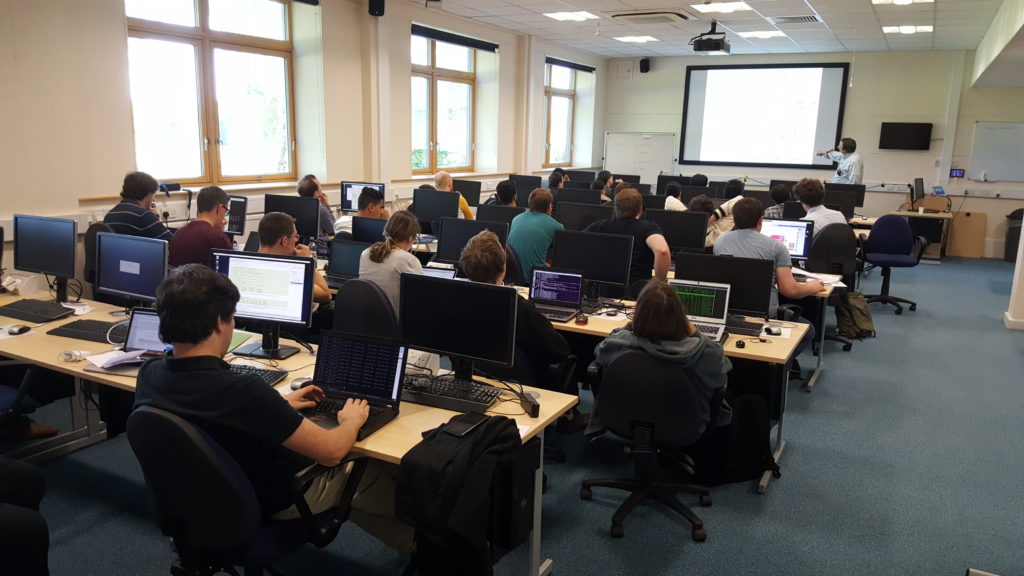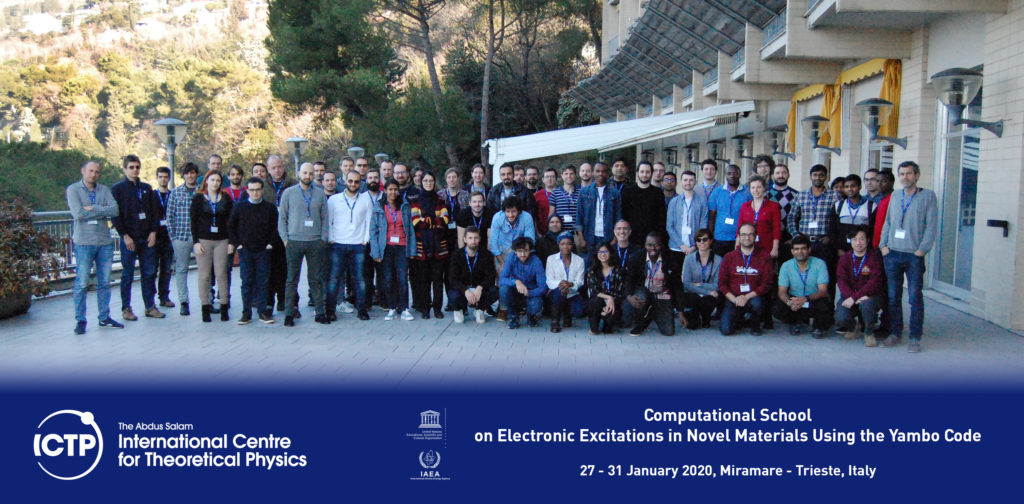The deadline for submitting pre-proposals for 2021-22 Psi-k activities funding is next Friday – 31 July. Don’t miss out… submit your pre-proposal online now. All information is included in the announcement below.
Psi-k is a worldwide network of researchers working on the advancement of first-principles computational materials science. Its mission is to develop fundamental theory, algorithms, and computer codes in order to understand, predict, and design materials properties and functions. Key activities of Psi-k are the organization of conferences, workshops, tutorials and training schools as well as the dissemination of scientific thinking in society [Excerpt from the mission statement at https://psi-k.net/].
In normal years Psi-k typically funds schools (1-2 weeks), workshops (2-3 days), international conferences (2-5 days), and codes/methods tutorials (3 days-1 week), with a focus on electronic-structure methods, developments, and applications. Funding is of the order of 4,000/8,000/12,000 €, depending on size and duration (as a guideline, 30 €/expected participant/day); Psi-k funds around 25-35 activities for every call (see here https://psi-k.net/workshops/ for the 2020-21 activities).
For this call, while we plan to support some of these more traditional activities, we also call for a renewed focus on, attention to and ingenious development of novel models in research sharing, dissemination, teaching, and discussion – the freedom of our Charity allows us to consider less conventional proposals with funding devoted to digital or remote approaches.
We have a two-step application process to simplify and streamline applications, elicit more original proposals, improve planning, and avoid duplication of efforts. The present call for pre-proposals is for events that will take place between 1 April 2021 and 31 March 2022.
Please note: for this year only events that take place in August and September 2021 will NOT be considered for funding to avoid a clash with the rescheduled Psi-k Conference that will take place in Lausanne, 23-26 August 2021.
Pre-proposals should be submitted online by Friday 31 July 2020 (midnight UK time), describing the planned event (download a draft of the form here). Psi-k Working Groups (https://psi-k.net/groups) and Trustees (https://psi-k.net/admin/) will either approve this pre-proposal for full submission, reject it, or suggest a merger between different activities – you are very welcome to contact the relevant Working Group leaders or members beforehand.
Feedback will be provided the week of Monday 21 September 2020. Pre-proposals that have been approved or mergers that have been successfully negotiated will then be invited to submit a full proposal by Friday 30 October 2020. These proposals will then be evaluated and approved – with full or partial funding – or declined at the meeting of the Trustees, Scientific Advisory Committee (https://psi-k.net/scientific-advisory-committee/) and Working Group leaders on Friday 27 November 2020.
The evaluation of the pre-proposals and full proposals will be based on:
- the scientific quality of the proposal,
- its intellectual inclusiveness and diversity of representatives,
- the scientific merit of the organizers, and
- appropriateness of budget, while of course
- responding to the Psi-k mission statement


